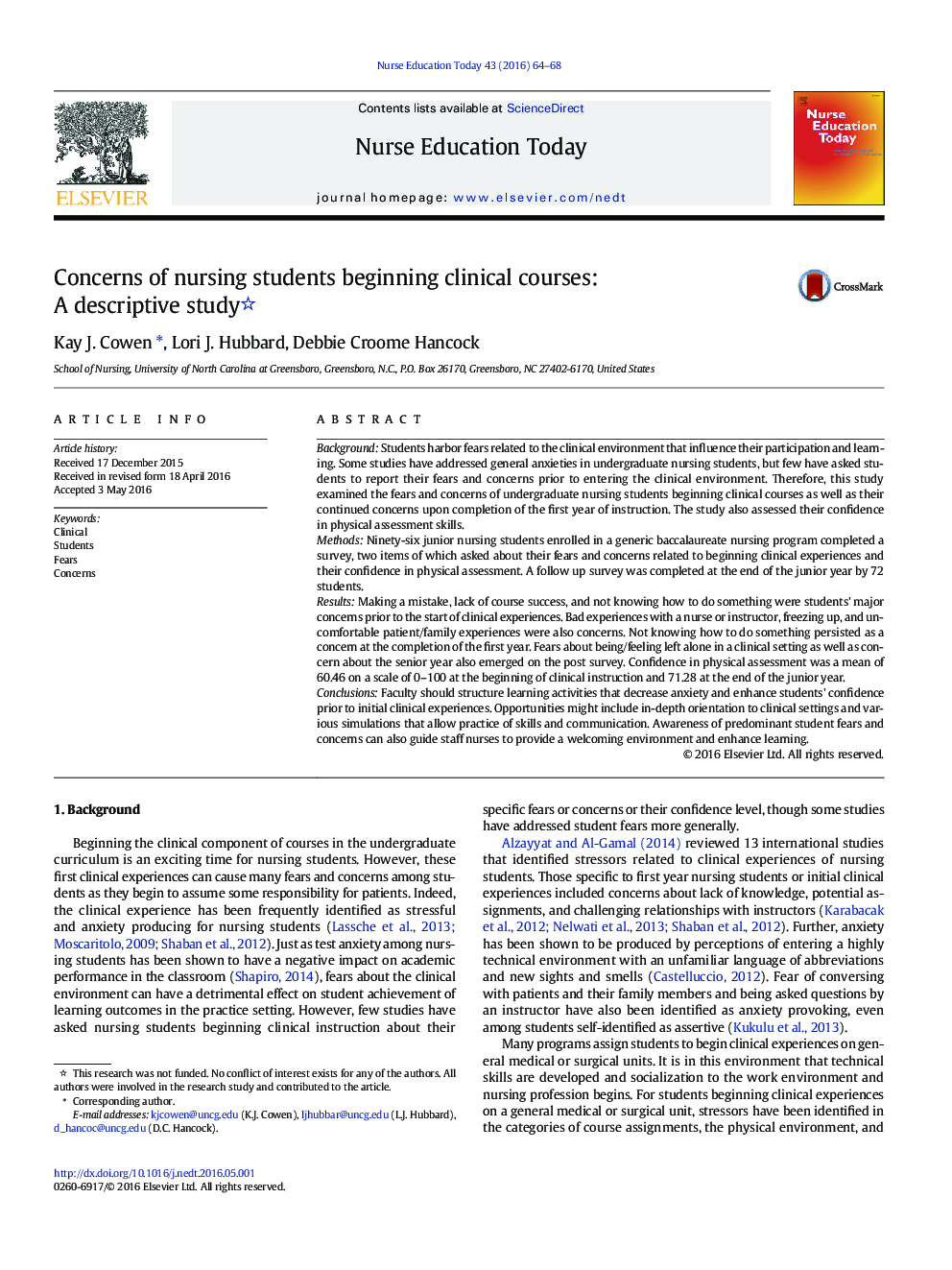| Article ID | Journal | Published Year | Pages | File Type |
|---|---|---|---|---|
| 367822 | Nurse Education Today | 2016 | 5 Pages |
•Nursing students have fears and concerns related to beginning clinical experiences.•Making a mistake, lack of course success, and not knowing were major concerns.•“Not knowing” persisted as a major concern at the completion of the first year.•Confidence in physical assessment increased during the first year.
BackgroundStudents harbor fears related to the clinical environment that influence their participation and learning. Some studies have addressed general anxieties in undergraduate nursing students, but few have asked students to report their fears and concerns prior to entering the clinical environment. Therefore, this study examined the fears and concerns of undergraduate nursing students beginning clinical courses as well as their continued concerns upon completion of the first year of instruction. The study also assessed their confidence in physical assessment skills.MethodsNinety-six junior nursing students enrolled in a generic baccalaureate nursing program completed a survey, two items of which asked about their fears and concerns related to beginning clinical experiences and their confidence in physical assessment. A follow up survey was completed at the end of the junior year by 72 students.ResultsMaking a mistake, lack of course success, and not knowing how to do something were students' major concerns prior to the start of clinical experiences. Bad experiences with a nurse or instructor, freezing up, and uncomfortable patient/family experiences were also concerns. Not knowing how to do something persisted as a concern at the completion of the first year. Fears about being/feeling left alone in a clinical setting as well as concern about the senior year also emerged on the post survey. Confidence in physical assessment was a mean of 60.46 on a scale of 0–100 at the beginning of clinical instruction and 71.28 at the end of the junior year.ConclusionsFaculty should structure learning activities that decrease anxiety and enhance students' confidence prior to initial clinical experiences. Opportunities might include in-depth orientation to clinical settings and various simulations that allow practice of skills and communication. Awareness of predominant student fears and concerns can also guide staff nurses to provide a welcoming environment and enhance learning.
